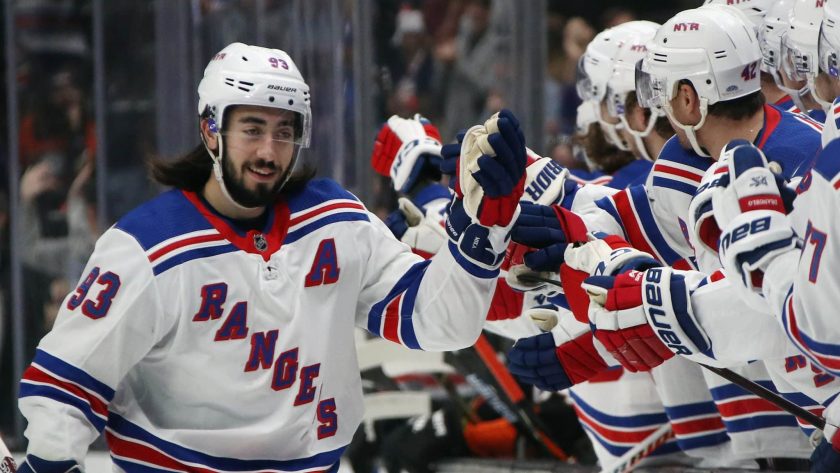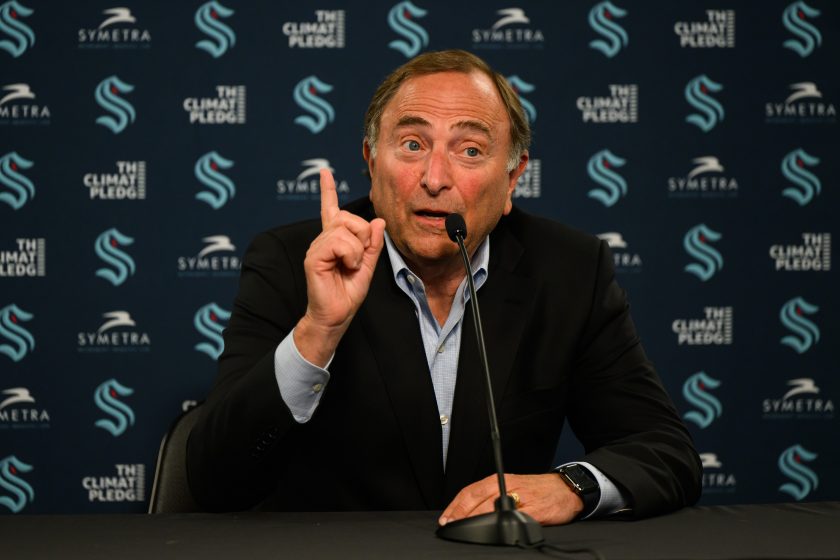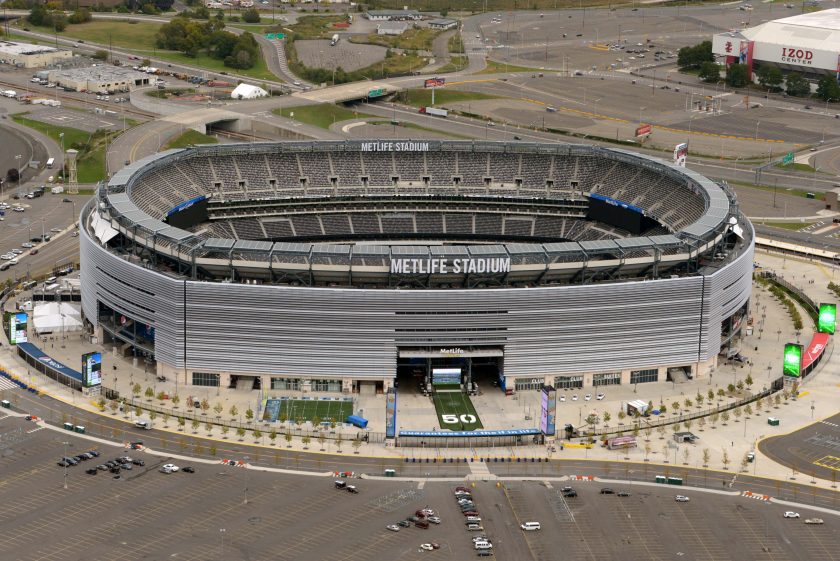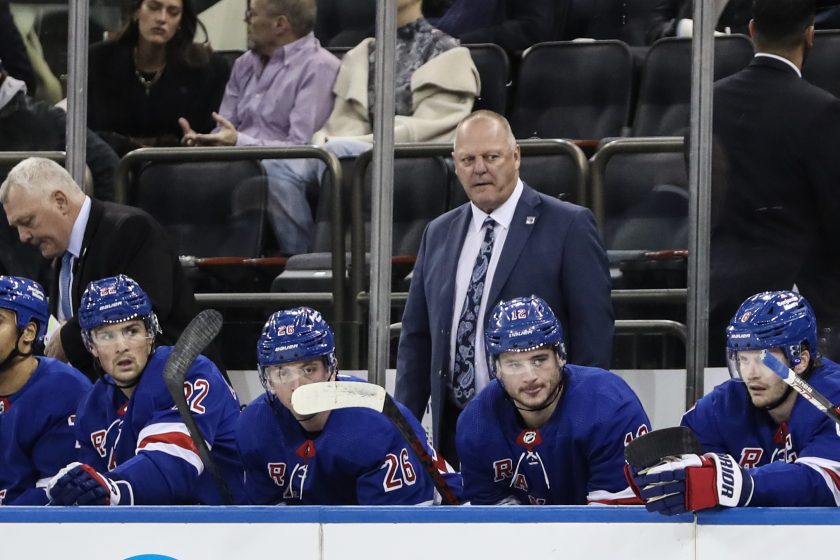New York Rangers: Mika Zibanejad’s rise to stardom

While it sounds counterintuitive, Jeff Gorton’s most successful transaction of the New York Rangers’ rebuild happened before it even began.
Before Jeff Gorton infamously penned a letter to New York Rangers fans announcing management’s intentions of rebuilding the roster, the Blueshirts had subtly begun the process already.
The Rangers started their youth movement when the front office orchestrated a rather shocking trade in July of 2016. New York dealt Derick Brassard — 28-years-old at the time — for a second-round draft pick and a largely unheard-of 23-year-old center named Mika Zibanejad.
Brassard, also a pivot, was a fan favorite at Madison Square Garden. He was the team’s de facto No. 1 center and a clutch playoff performer. He additionally had just put together a 27-goal, 58-point campaign in which he was the Blueshirts’ leading goal-scorer.
It’s not often that you see a supposed contending team trade its beloved first-line center—-especially, when that individual is in the prime of their career, on a bargain contract, and coming off of one of their most productive seasons. Gorton intelligently realized that his team’s Stanley Cup window was closing, though. He planned ahead and wished for a head start on the rebuild.
In Zibanejad, the Rangers received a relatively unproven commodity that was quietly on the rise. Because the Swedish centerman was playing on a non-competitive, small-market team, he had received little attention around the league prior to his arrival on Broadway.
Through his three seasons with the Senators, the former sixth overall pick was able to improve his numbers each year. In his final campaign in Ottawa, Zibanejad notched 51 points in 81 games, an impressive feat for a young player.
Rangers fans, thus, viewed their newest addition as a promising young talent and a suitable replacement for Brassard. Zibanejad played a similar finesse style but was nearly 5.5 years younger and almost $2.5 million cheaper.
This seemed like a move that would allow the Blueshirts to stay competitive while also preparing for the future. Keep in mind, Ottawa dealt Zibanejad alongside a high draft pick.
While expectations were high for Zibanejad, nobody expected the meteoric rise that we are witnessing. Since arriving in New York, No. 93 has done more than just taken his game to the next level. He’s emerged as one of the National Hockey League’s truly elite centers.
But things weren’t always looking this good for the Blueshirts’ star player.
Zibanejad’s Rangers tenure started out hot. He posted 15 points in his first 19 games in New York. Unfortunately, in that 19th matchup, the 6-foot-2 pivot suffered a broken leg and missed nearly two months.
When he returned to the lineup, Zibanejad didn’t look like the same player. He scored 22 points in the team’s final 37 contests, a major regression from his early-season success. Zibanejad ended the regular season with a total of 37 points in 56 games, putting him on pace for 54 points across an 82-game-season.
Despite a somewhat disappointing finish to the regular season, the native of Huddinge, Sweden came alive in the playoffs. He led the team with nine points in 12 games and earned a five-year, $26.75 million extension in the offseason.
Zibanejad’s second season as a Ranger was eerily similar to his first. After building off of his momentum from the prior season with 22 points through the team’s first 24 contests, Zibanejad missed time with another injury. This time it was a concussion, an injury that’s plagued him throughout his entire career.
Although he missed only 10 games, Zibanejad failed to return to form following his setback. He went on to score a mere 25 more points in his 48 games post-concussion. Again, Zibanejad endured a significant scoring drop-off following his injury. And by this time, the rebuild was underway, so No. 93 didn’t have any playoff action to redeem himself.
Zibanejad finished his second campaign in New York with 47 points in 72 contests. This once again put him on an 82-game pace of 54 points.
The injury-prone Swede’s third year on Broadway would be a crucial one. If Zibanejad could stay healthy and maintain his customary hot start, then he could solidify himself as the Rangers’ first-line center of the future. Nonetheless, a third straight injury-riddled, inconsistent season could have resulted in a delay in the Blueshirts’ rebuild.
Needless to say, Zibanejad came out and executed, making his previous two disappointing seasons a distant memory. The former Senator played 82 games and exploded for a whopping 74 points. It was the best output by a Ranger since Marián Gáborík.
More importantly, Zibanejad’s success has proven to be no fluke. In spite of the fact that he was injured for 13 games earlier this season, Zibanejad has continued to score at a torrid pace since returning to the lineup. With a total of 42 points in 36 contests, Zibanejad is on track to notch 96 points if he were to play a full season.
It was a long road to this point. But in Zibanejad, the Blueshirts finally discovered the elite center that they’d long been trying to find. The 26-year-old is a core, foundational piece of the Rangers’ rebuild. Not to mention, it looks like the sky’s the limit for his growth.
Additionally, the talented youngster has become a true leader off the ice and looks destined to become a team captain. Quite frankly, Zibanejad’s only flaw is his ability to stay healthy.
As for Brassard, he’s played for four teams since leaving New York. While the Rangers undoubtedly pulled off a heist in acquiring Zibanejad, let’s not forget that Brassard did receive his revenge.
In Game 5 of the 2017 Eastern Conference Semifinals, Brassard forced overtime by scoring the game-tying goal for Ottawa with 1:26 remaining in the third period. The goal ultimately changed the momentum of that series. The Senators went on to win that game and then the series with a Game 6 victory at The Garden.
Brassard’s series-changing tally cost the Rangers a trip to the Eastern Conference Finals and one final shot at a Lord Stanley’s Cup. Thus, the drought continues.
Rangerstown always referred to him as “Big Game Brass” for a reason.
Nowadays, it’s Zibanejad on Broadway that’s already stolen the hearts of New York Rangers fans.
Brian Paget has been a diehard New York Rangers and New York Jets fan since 2007. He is an aspiring young journalist, who is thrilled to be writing for Elite Sports New York. Brian will be covering the Blueshirts and the Jets for ESNY. He is currently a member of the NHL's Youth Advisory Board, and previously served as a Staff Writer for a Rangers website entitled BlueshirtsNation. You can reach Brian via E-Mail at brianhockey10@gmail.com, and find him on Twitter at @BrianPaget17.






